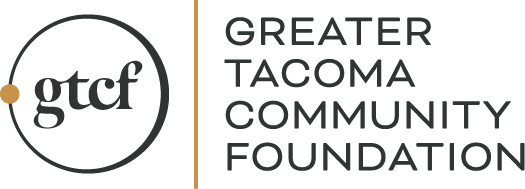
Community
11
“Fill Out the D@?? Form”, and Other Ways Pierce County Groups are Raising Awareness of the 2020 Census

An accurate census count drives decisions that directly affect daily life in Pierce County. (IMAGE: Mark Monlux)
The Tacoma Urban League website offers T-shirts and sweatshirts with the phrase “Fill Out the D@?? Form” emblazoned on the front. It’s one of the many ways the Black Caucus is raising awareness about the importance of responding to the U.S. census by April 1, 2020.
The catch-phrase, “Fill Out the D@?? Form”, came out of a meeting of the 2020 Census Black Caucus. Members talked about memorable ways to get people’s attention about the importance of responding to the census. The no-nonsense statement fit the bill.
The 2020 Census Black Caucus formed as part of Pierce County’s Complete Count committee, a group of representatives from organizations, networks, and associations throughout the county dedicated to making sure every resident of Pierce County is informed, engaged, and valued in the census process. Many other census sub-committees are forming within communities to identify how the census impacts their members, and to develop messaging that resonates with them.
Historically, certain individuals have been excluded or “undercounted” from the census. In Pierce County, hard-to-count communities include African-Americans, Asian-Pacific Islanders, other communities of color, LGBTQIA individuals, children under age five, post-secondary students, senior citizens, immigrants, refugees, individuals with mental or physical disabilities, individuals with low incomes, and those experiencing homelessness.
By law, individual census data cannot be shared with other government agencies, including ICE (Immigration and Customs Enforcement). There will be no citizenship question on the 2020 Census.
In 2010, only 80 percent of Pierce County residents completed the census. “The greatest barrier is distrust of the government,” said T’wina Nobles, President & CEO of the Tacoma Urban League.
That statement is echoed by Lua Pritchard, executive director of the Asia Pacific Cultural Center, another member of the Pierce County Complete Count Committee, “Many in our community fear what the information will be used for and there is also confusion about the citizenship aspect. We’re allaying those fears.”
By law, individual census data cannot be shared with other government agencies, including ICE (Immigration and Customs Enforcement). There will be no citizenship question on the 2020 Census.
“We have to do mythbusting about the census,” said Mark Hernandez, a college senior at Pacific Lutheran University, who is co-leading the outreach effort to college students, along with Musa Abdirahman, a sophomore at University of Puget Sound.
“We’ll be reaching out to all post-secondary schools in Pierce County,” he said. “We want to educate college students about what the census means, why it’s so important to participate, how it affects our community, our neighbors.”
“I came here for college and just fell in love with Tacoma and Pierce County. Now I can help work with other young people to uplift our community.”
The U.S. Constitution requires that every 10 years, the federal government count everyone living in the United States. Census data is used for a host of purposes, including:
- Allocating Congressional seats
- Federal funding for health care, education, transportation, housing, child care, social service and other programs
- Demographic research for businesses expanding or locating
- Local and regional agencies like public transit
The University of Washington-Tacoma’s Center for Applied Urban Research looked into how census data affects daily life in Pierce County. The video below provides real-life examples of decisions driven by the census, and how an undercount could impact Pierce County.
Another barrier to census participation is language. “The Asia Pacific Cultural Center represents people from 47 different countries and many languages,” said Pritchard. “We’ll use meetings, events, email, social media and our website to get the word out. We’ll work with hundreds of local churches in our own languages and cultures.”
The Pierce County Auditor’s Office offers comprehensive census information and communication tools on its website. Materials have been translated and are available in 11 languages.
The census starts April 1, 2020 and a local census office will soon open in downtown Tacoma. The census will be electronic, but there will also be options to use paper forms or complete the form by phone.
The Urban League, Asia Pacific Cultural Center, schools, libraries and other organizations plan to make their own computer labs available for the public to access the census.
“What excites me about this project is it’s allowing me to get more involved in Pierce County,” said Hernandez. “I came here for college and just fell in love with Tacoma and Pierce County. Now I can help work with other young people to uplift our community.”
APPLY FOR CENSUS OUTREACH FUNDING
GTCF invites tribes, local government, organizations, associations, coalitions, and collaborative networks with trusted relationship in hard-to-count communities to apply for grants that support outreach and communications about the 2020 Census.
The 2020 census is a once-in-a-decade opportunity to inform data that directly affects everyone in Pierce County. These funds can be used to include census information in your existing community work.
You know your community and its needs best. GTCF is ready to support your work in ensuring every resident of Pierce County is informed, engaged, and valued in the census process.
CLICK HERE TO LEARN MORE – APPLICATIONS OPEN SEPTEMBER 30 – NOVEMBER 1, 2019, 5:00 PM PST

